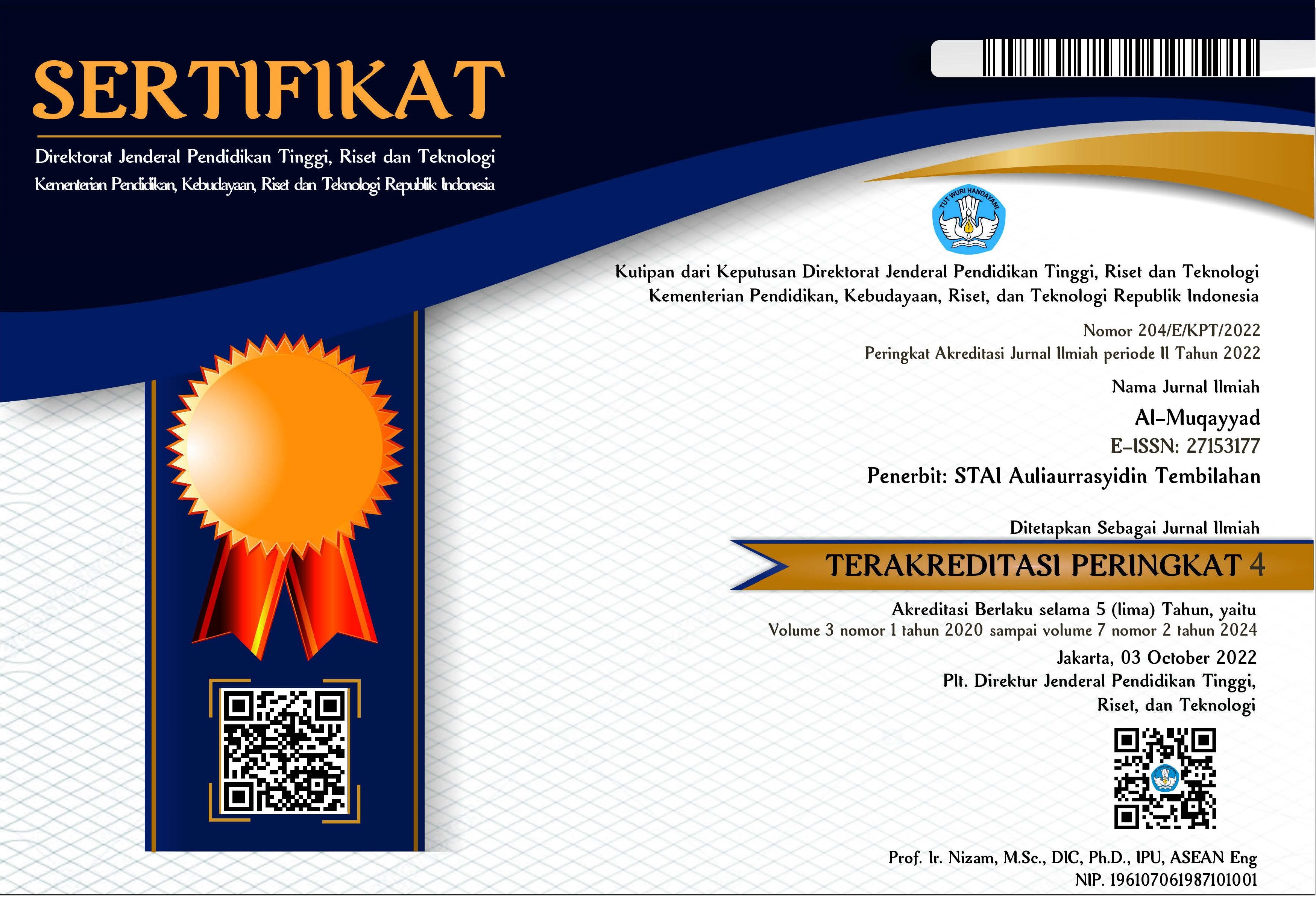Penerapan Nilai-Nilai Syariah dalam Meningkatkan Kepuasan Nasabah pada Bank Muamalat KCP Stabat
DOI:
https://doi.org/10.46963/jam.v6i1.1005Keywords:
Implementation of sharia values, Customer satisfaction, Bank MuamalatAbstract
Long-term customer satisfaction still needs to be improved in order to help improve the customer's economy and increase the number of customers as well as provide progress for Islamic banks themselves. In increasing bank customer satisfaction, it is necessary to take a way through the application of sharia values. The purpose of the article is to find out how influential the implementation of sharia values is on customer satisfaction at Bank Muamalat KCP Stabat. This research method was conducted using quantitative research methods. The research was conducted by way of field survey research. Data collection techniques in this study used interviews and questionnaires. The analysis technique in the data uses a simple correlation. Data processing using the SPSS software program. The results of this study prove that there is a simultaneous influence of the application of sharia values on customer satisfaction at Bank Muamalat KCP Stabat.
Downloads
References
A. Karim, Adiwarman. (2003). Analisis Fiqih dan Keuangan. Jakarta: IIIT Indonesia.
Alfira Anugrah, Besse. (2018). Pengaruh Penerapan Nilai-Nilai Islam Terhadap Loyalitas Nasabah Pada PT Bank Syariah Mandiri cabang Makassar. Skripsi: Ekonomi Islam. Makassar: Universitas Muhammaddiyah Makassar.
Aliah, Himatul. (2018). Pengaruh Kualitas Pelayanan Dan Penerapan Prinsip-Prinsip Syariah Terhadap Kepuasan Nasabah KPR Di BNI Syariah Cabang Semarang. Skripsi: Ekonomi Islam. Semarang: Institusi Agama Islam Negeri Walisongo Semarang.
Al-Mahalli, Jalaluddin dan As-Suyuthi, Jalaluddin. (2017). Tafsir Jalalain Lengkap dan Disertai Asbabun Nuzul. Jakarta: Pustaka Al-Kautsar.
Amini, Aisyah. (2019). Pengaruh Kualitas Produk Dan Penerapan Nilai Islam Terhadap Kepuasan Nasabah Pada Bank Nagari Capem Syariah Padang Panjang. Skripsi: Ekonomi Islam. Bukit Tinggi: IAIN Bukit Tinggi.
Arifin, Imamul. (2007). Membuka Cakrawala Ekonomi. Jakarta: Setia Purna Inves.
Badudu dan Muhammad Zain, Sutan. (2010). Efektifitas Bahasa Indonesia. Jakarta: Balai Pustaka.
Bagus, Lorens. (1996). Kamus Filsafat. Jakarta: Gramedia Pustaka Utama.
Bank Muamalat, (2021). Profil Bank Muamalat, Diperoleh di https://www.bankmuamalat.co.id.
Departemen Agama Republik Indonesia, (2010). Al-Qur’an Dan Terjemahannya, Bandung: Diponegoro.
Departemen Pendidikan Dan Kebudayaan. (1988). Kamus Besar Bahasa Indonesia. Jakarta: Balai Pustaka.
Departemen Pendidikan Nasional. (2008). Kamus Besar Bahasa Indonesia Pusat Bahasa. Jakarta: PT. Gramedia Mustafa Utama.
Djazuli, A dan Yanuari, Yadi. (2001). Lembaga-Lembaga Perekonomian Umat (Sebuah Pengenalan). Jakarta: Rajawali Press.
Edwin, Mustafa. (2006). Proses Penelitian Kuantitatif. Jakarta: Lembaga Penerbit Fakultas Ekonomi Universitas Indonesia.
Firdaus, Muhammad. (2005). Konsep & Implementasi Bank Syariah. Jakarta: Renaisan.
Downloads
Published
Issue
Section
License
Copyright (c) 2023 Riski Aseandi, Safaruddin Munthe, Aswin Fahmi D

This work is licensed under a Creative Commons Attribution-ShareAlike 4.0 International License.
Authors who publish with this journal agree to the following terms:
1. Copyright on any article is retained by the author(s).
2. The author grants the journal, right of first publication with the work simultaneously licensed under a Creative Commons Attribution shareAlike 4.0 International License that allows others to share the work with an acknowledgment of the work’s authorship and initial publication in this journal.
3. Authors are able to enter into separate, additional contractual arrangements for the non-exclusive distribution of the journal’s published version of the work (e.g., post it to an institutional repository or publish it in a book), with an acknowledgment of its initial publication in this journal.
4. Authors are permitted and encouraged to post their work online (e.g., in institutional repositories or on their website) prior to and during the submission process, as it can lead to productive exchanges, as well as earlier and greater citation of published work.
5. The article and any associated published material is distributed under the Creative Commons Attribution-ShareAlike 4.0 International License





2.png)



